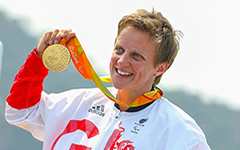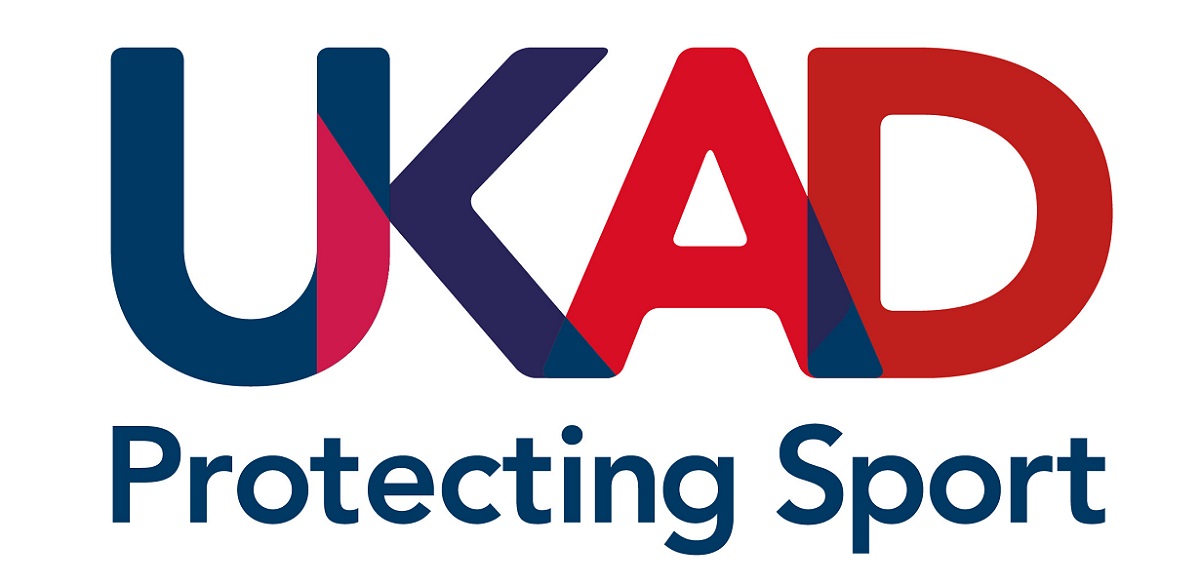BLOG: Athletes must have a voice around the table where it counts most – Jo Calvino
The 2019 WADA Annual Symposium last week welcomed 900 delegates from the global anti-doping community to Lausanne for two days of presentations, interviews, panel discussions, practical workshops and networking sessions under the theme ‘Towards 2021 – Navigating the Future Together’.
Among them were UKAD Athlete Commission members Ali Jawad, Jo Calvino and Liam Tancock. British weightlifter Jo, who joined the Commission in July of last year, tells us about her highlights and key learnings from the Symposium.
One of the standout sessions of the Symposium was titled ‘Looking Back and Moving Forward Together’, chaired by former UKAD Chief Executive and current British Rowing CEO, Andy Parkinson.
I thought the panel for this session, which included UKAD Head of Education Amanda Hudson, were very clear on addressing the positives learnt from the past 12-18 months. There was a strong sense that national anti-doping agencies (NADOs) need to step up and take responsibility to educate athletes.
I also found the athlete sessions particularly useful as they provided me with an opportunity to interact with other athletes, current and former, and share experiences. Discussions also centred around our responsibility to represent athletes and be their voice, especially when current athletes are scared to voice their opinions or are restricted by sports politics. We need to fight for them.
The 2021 World Anti-Doping Code International Standards Review session outlined how this document is still a work in progress but gave a clearer indication of its timeline. It was especially interesting to hear how they have put the documents together recognising the rights of athletes.
Similarly, the WADA Athlete Committee presented on the progress of the Anti-Doping Charter of Athletes’ Rights, which answered a lot of unanswered questions about how this will look come its rollout.
The Charter will have 10 articles of actual rights and four articles of aspirational rights, based on the 2021 Code. I feel following the Symposium the key priority is to understand what the Charter represents and stands for.
Those in attendance got a sneak peek at the all-new ADAMS app. In general, it looks a lot fresher and user-friendly; they have reviewed the app and received feedback from athletes all over the world to ensure it is compatible with its end users.
For example, athletes will not need to input the same data into the app every time as it will save information for future use, ultimately saving time. Athletes will also be able to set up alert notifications to remind you of your Whereabouts, which I think is a fantastic development. Anything we can do to make the processes as simple as possible can only be a positive.
Overall, I found Symposium’s sessions very intriguing, as well as being thought-provoking, they also made me realise how important my role is not just in my sport, but sport as a whole – on a global level as well as UK-based.
There is certainly a sense of athletes wanting to be key stakeholders around the anti-doping table, and that they should be directly involved in the decision-making for the better of sport. Having been part of UKAD’s Athlete Commission for nearly a year, and one in which the athlete voice has proved such a talking point, I certainly welcome the desire for more athlete involvement at a governance level.
Having said that, we, as athletes, feel that there is a mixed-message coming from senior figures. That is, stating the athlete voice is important, but not giving us that voice when it matters most. We would like to see this change.
Jo’s top three takeaways from the Symposium:
1. We, as athletes, must make more noise, but in the right way.
2. Athletes must have a voice around the table where it counts most.
3. In the UK we are far more advanced in education and having an athlete’s voice.



